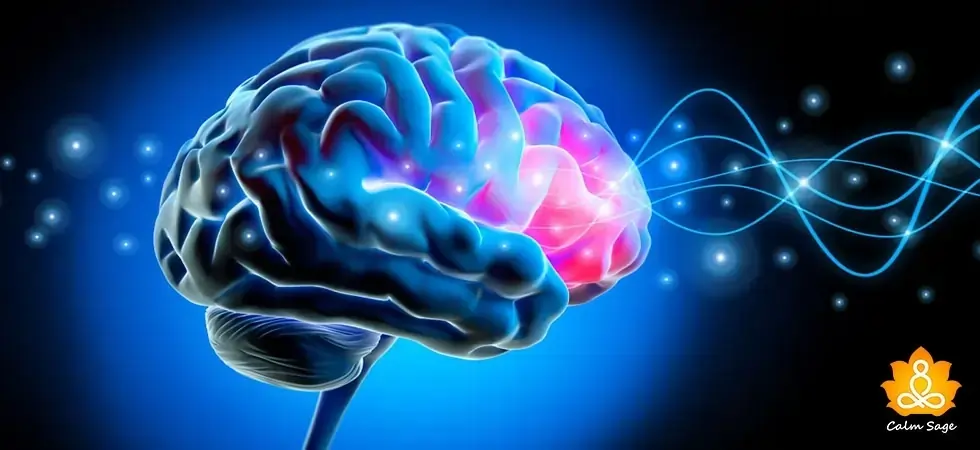Narcissistic Victim Syndrome: The Signs You Need To Look Out For (And How To Get Help)

People with narcissistic tendencies often struggle with an inflated sense of self-importance, an extreme need for admiration, and grandiosity. This complicated mental health disorder can be termed narcissistic personality disorder (NPD).
People with narcissistic traits often show patterns of emotional abuse or verbal abuse – one that is often born out of narcissistic manipulation, also known as “Narcissistic Abuse”.
Narcissistic manipulation can include behavior such as triangulation, gaslighting, hoovering, giving the silent treatment, scapegoating, and passive-aggressiveness. The narcissistic manipulation tactics are often done to confuse the victim, make them question their reality, and lower their self-esteem.
In this blog, let’s explore more on what narcissistic victim syndrome or narcissistic abuse is, its signs, and how you can get the right help!
Keep in mind that narcissistic abuse can leave long-lasting and severe impacts on a person’s mental and emotional health. Keep an eye out for another blog to understand the effects of narcissistic abuse!
What Is Narcissistic Victim Syndrome Or Narcissistic Abuse?

Narcissistic abuse is when narcissists use abusive and manipulative tactics to hide their low self-esteem, their lack of empathy, and other unpleasant emotions by hurting others – mentally and emotionally.
Verbal abuse, often through accusation, criticism, threats is a more common form of narcissistic abuse. A narcissist also uses tactics such as gaslighting to muddle your reality and second guess yourself.
Victims of narcissistic abuse can show symptoms of post-traumatic stress disorder – including complex PTSD. They may show signs such as intrusive thoughts, flashbacks, loneliness, isolation, etc.
Now, let’s take a look at the signs of narcissistic victim syndrome or narcissistic abuse.
Signs Of Narcissistic Victim Syndrome
1. False Perfection
Narcissist abuse starts very slow and differently. In the beginning, the relationship may look like a perfect fairy-tale, making you believe that you’ve fallen for the right person. During the beginning of the relationship, your partner is all lovey-dovey, kind, and affectionate but this false sense of security can slowly morph into manipulation. This happens in narcissistic parenting as well.
2. Others Doubt Your Words
Narcissistic manipulation is subtle. Publicly, the abuse is well-disguised so others may not exactly believe your words. This can make you feel even more confused and guilty for doubting your partner. This doubt can be very harmful and can make you lose faith in your judgment.
3. Defamation Of Character
Or a smear campaign, if you will. Narcissists often value their image more than anything else and to keep the admiration coming, they may defame you and make you look bad. They may openly direct their rage, criticize you, insult you, or say that you’re “unstable”. They try to win others’ support by saying they have your best interest at heart. This can cause a lack of social support.
4. You Feel Isolated
If your close friends and family fail to understand the trauma you’re facing, you may begin to feel isolated. This can only worsen narcissistic abuse. The abuser may slowly pull you in again with apologies, claiming that the abuse is in your head. The lack of social support to deal with abuse can hamper your perceptions of abuse as well.
5. The Freeze Response
The reaction to abuse and trauma is different for everyone. While some may choose the flight-or-fight response to escape trauma, others may often respond with the freeze response. This response occurs when you feel helpless and involves dissociation from reality to escape the trauma.
6. Trouble With Decision-Making
As a victim of narcissistic abuse, you may face a lot of criticism that may steal away your self-esteem and self-confidence. Narcissistic manipulation can involve implications that you often make the wrong decisions. Name-calling with an affectionate tone can be an example. This kind of pattern can negatively affect your decision-making skills and second-guess yourself all the time.
7. You Self-Blame
In abusive relationships, many victims self-blame or the abusive partners find ways to blame their actions on the victims. They often do this through deceit and gaslighting. The abusive partner may accuse the victim and redirect the blame to hurt and belittle the victim. This creates a pattern of self-blame that can affect the psyche of the victim.
8. Unexplained Physical Symptoms
It’s not always emotional symptoms that occur when one struggles with narcissistic victim syndrome. Narcissistic abuse can also trigger physical symptoms such as changes in appetite, insomnia, nausea, muscle aches, fatigue, and more. These physical symptoms may often lead many to turn to alcohol to manage the symptoms.
9. You’re Often Restless
Narcissistic abuse is unpredictable and you never know what’s next in store for you. This kind of uncertainty may often cause you to feel restless and tense, seemingly preparing yourself to face conflict. The constant worry of handling criticism and abuse may leave you being constantly on the alert and feeling unsafe to let down your guard.
10. A Loss Of Self-Identity
When you struggle with narcissistic victim syndrome, you may notice that you often adjust your self-identity to suit your partner. They may use manipulative statements in a way that you begin to feel sorry and go with them instead, forgoing all sense of self. You may find yourself canceling your plans to suit theirs. Eventually, this can lead to a loss of self-identity and sense of purpose.
11. Trouble In Setting Boundaries
If you’re a victim of narcissistic abuse, then you may often face trouble setting boundaries. When you try to set boundaries in the relationship, your partner may ignore them or give you the silent treatment until you relent. Some narcissists may also use other manipulative tactics to make you drop your boundaries.
12. You Struggle With Anxiety Or Depression
When one suffers from narcissistic abuse, anxiety, and depression soon develop. The stress of facing a constant threat can bring feelings of worry, nervousness, and fear. You begin to feel hopeless, anhedonia and face a hard time seeing a happy outcome in the future. You may also begin to take the blame for the abuse on your shoulders, believing you deserve it.
Getting The Right Help!
Abuse – whether narcissistic, emotional, verbal, or physical – can take a toll on your overall well-being. Any kind of mistreatment that comes at the expense of your mental and emotional wellness isn’t to be tolerated. If your loved ones are doubting you or are not supporting you, then this could make matters worse.
Getting the right help is crucial! Whether you’ve been experiencing narcissistic abuse for years or if you’ve just begun to notice the symptoms of narcissistic victim syndrome, you need to reach out to a professional for help.
Therapy can offer a safe space to learn coping skills to manage your symptoms, learn how to set healthy boundaries, explore how to build your sense of self, and more. The right therapist can also help validate your abuse experience and help you recover from the effects of abuse.
You can get help today by connecting with BetterHelp’s professionals or reaching out to an abuse recovery hotline. You can also connect with the National Domestic Violence Hotline or call 1800-799-7233, text “START” to 88788.
Help is always available! Please reach out to your nearest emergency helpline if you’re in immediate danger.
I hope the signs of narcissistic victim syndrome or narcissistic abuse written in this article can help you spot abuse and get the help you need. For more, you can drop us an email at info@calmsage.com or DM us on social media.
Take care and stay safe!




















